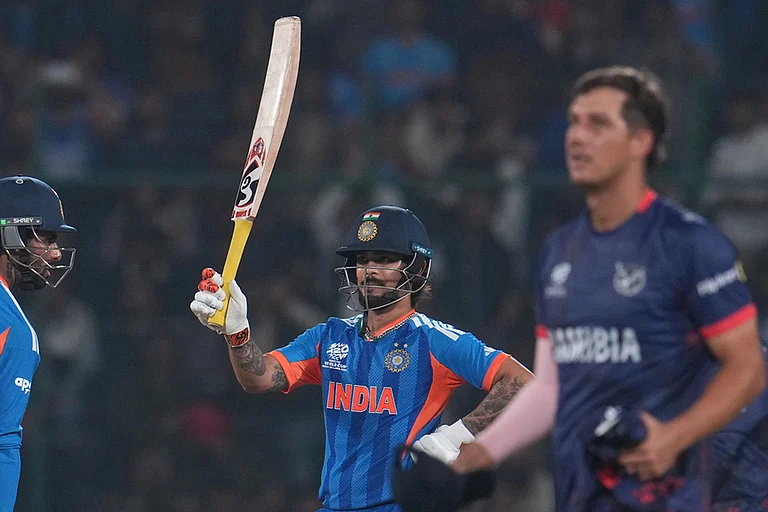The beliefs that frame our age-old traditions often exhibit a delicate balance of universal values with some parochial values. While certain values of compassion, justice, and ethical integrity are universal to all by virtue of being humane, the customs and traditions passed on for generations through centuries tend to occupy a distinct sphere in our lives.
In some instances, these two sets of values are at loggerheads with each other, wherein the realization of the latter may find itself in conflict with the former. Cultural practices such as Jallikattu lay at this very juncture, wherein the ancient sport has found itself caught amid a multitude of double-edged debates: of Culture v/s Morality, of Tradition v/s Modernity, and of Religion v/s Law.
Here’s why Jallikattu, an ancient bull taming sport held annually in Tamil Nadu in the second week of January, has found itself in the midst of a two-decades long hotly contested legal battle:
What is Jallikattu?
Jallikattu is a 2,000 years old competitive bull taming sport in which contestants attempt to tame a bull for a prize, wherein if they fail, the bull owner wins the prize. It is revered across the Madurai, Tiruchirappalli, Theni, Pudukkottai and Dindigul districts of Tamil Nadu, known as the Jallikattu belt.
It is celebrated in the second week of January at the time of the Pongal (harvest) festival, and also represents a symbolic event to honor bull owners who rear them for mating. Essentially, it has become a traditional way for the agriculturist community to preserve their pure-breed native bulls, which are otherwise used only for meat or ploughing the fields.
In this regard, Kangayam, Pulikulam, Umbalachery, Bargur and Malai Maadu are among some native cattle breeds reared for Jallikattu in the state.
What is the cultural significance of Jallikattu?
The term Jallikattu is a union of two words: ‘Calli’ (coins) and ‘Kattu’ (tie), which denotes a bundle of coins tied to the bull’s horns. Practitioners believe that the sport cultivates and represents a cordial man-animal relationship, wherein the owner strives to develop an “emotional connect” with the bull through the long process of rearing.
The sport has been an ancient tradition since centuries. In fact, its first references date back to a seal discovered at Mohenjodaro, which is dated between 2,500 BC and 1,800 BC. Back then, it was called Eru Thazuval, meaning “embracing the bull.”
Moreover, Jallikattu also finds mention in Silappadikaram, one of the great Tamil epics from the Sangam age, which has even led some to even revere the cattle as sacred and holy.
Why are some groups calling for a ban on Jallikattu?
Animal rights activists and groups have for long contested a legal battle to press for a state-wide ban on Jallikattu since the early 2000s. The Animal Welfare Board of India (AWBI) approached the apex court seeking an intervention into the matter and deemed Jallikattu as “inherently cruel to animals” and said that the continuance of the practice is immoral and antithetical to a compassionate treatment for animals as per provisions of the Prevention of Cruelty to Animals Act, 1960.
In a report submitted in court in 2011, the AWBI contended that the animals face “unimaginable torture” in preparations for the sport, ranging from tails twisted and fractured, chemicals poured into eyes, ears mutilated, sharp edged weapons used to poke the animal.
Furthermore, besides animal fatalities, parties seeking a ban have also argued that the violent sport often results in manhandling of animals as well as several human deaths and injuries.
How has the legal battle unfolded thus far?
Ever since it first came under scrutiny, Jallikattu has witnessed a lot of back and forth within the legal domain. In 2006, the Madras High Court first instituted a state-wide ban on the sport after reports of a young spectator dying due to a bull attack.
The state government, however, found a way around the ban and introduced the Tamil Nadu Regulation of Jallikattu Act of 2009. In response to this, the central government in 2011 moved to include bulls in the list of animals whose training and exhibition was prohibited, thereby shutting the door on the practice.
Thereon, citing the 2011 notification released by the Environment ministry, the AWBI approached the top court seeking a nationwide ban on all violent sports involving animal cruelty. Subsequently, in 2014, in a 104 pages long order in the A. Nagaraja case, the Supreme Court upheld that Jallikattu amounted to cruelty to bulls and banned all similar bull taming and bull racing sports in the country, including in Andhra Pradesh, Punjab and Maharashtra.
But in 2016, as the state assembly elections were nearing, the Union Environment ministry revoked its 2011 notification, based on which the top court had ordered the ban. Subsequently, following massive protests in Chennai, the Tamil Nadu state government passed the Prevention of Cruelty to Animals (Tamil Nadu Amendment) Act of 2017 and Prevention of Cruelty to Animals (Conduct of Jallikattu) Rules of 2017, once again opening the gates for the conduct of the sport.
Thence in February 2018, the AWBI and PETA approached the Supreme Court, challenging the 2017 legislations passed by the Tamil Nadu government. On December 8, a five judge Constitution bench reserved its verdict on the matter, noting that Jallikattu cannot be termed a blood sport as nobody is using any weapon and the blood may only be an incidental thing..
What are the arguments against the ban?
Primarily, the defense counsel has argued that the practice of Jallikattu is a key component of the cultural heritage of the state, and that it should be granted constitutional protection as a fundamental and collective cultural right under Article 29 (1) of the Constitution. The said provision states that “any section of citizens residing in the territory of India or any part thereof having a distinct language, script or culture of its own shall have the right to conserve the same.”
The defense has also contended that rearing of pure-bred bulls supports conservation of animal breeds in line with Article 48 of the Constitution, which urges the state to endeavor to organize agriculture and animal husbandry on modern and scientific lines.
Additionally, in its submission before the apex court, the Tamil Nadu government has said that Jallikattu is “a practice which is centuries-old and symbolic of a community’s identity which can be regulated and reformed as the human race evolves rather than being completely obliterated.”
Moreover, practitioners and bull owners also appeal to the harmonious relationship the sport helps foster between man and animal, deeming it as ethical from a conservationist standpoint. They have also highlighted the necessary precautions in place to avoid untoward incidents. For instance, PTI quoted two Jallikattu trainers, Mani and Vinoth, as saying that many Jallikattu bulls do not have hooves and the idea is to prevent injuries to men in case the animals kicked them.
In a similar vein, the Karnataka government has also passed a law to save a similar bull-racing sport called Kambala, held annually between November and March. The PETA has alleged that Kambala too involves acts of cruelty on animals which are not physiologically suited for racing.


























